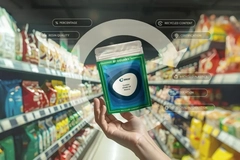EuPC: SUPD guideline delay has left EU plastics industry “scattered, unharmonized and in vagueness”

10 Jun 2021 --- European Plastics Converters (EuPC) is bemoaning the nearly one year delay on the release of the EU’s Single-Use Plastics Directive (SUPD) guidelines – which eventually published end of May 2021 – warning it has already resulted in “the first signs of scattered and unharmonized transposition scenarios” throughout the EU.
The SUPD will take effect on July 3, banning popular throwaway plastic items like cutlery, plates, straws, beverage stirrers, and beverage cups and containers made of EPS.
The now published EU guidelines will help guide both the national and the European legislators in the transposition and implementation of the Directive.
However, EuPC says with most countries already at an advanced stage of the legislative process, Member States have been forced to choose their own transposition paths while waiting for the overdue guidelines.

“The lack of harmonization will unavoidably result in severe disruptions to the internal market, forcing businesses to tailor their production processes on very diverse national legislative choices,” explains Alexandre Dangis, EuPC’s managing director.
“[This is] disadvantaging operators in countries that opted for the path of the over-transposition in comparison to their counterparts, operating in countries with more liberal interpretations of the directive.”
“The guidelines could have been a tool to provide necessary and long-awaited clarifications. An important opportunity has been lost, leaving an essential part of our European industry with uncertainty about the future of the different national legislative frameworks.” The SUPD will take effect on July 3, banning popular throwaway plastic items like cutlery, plates, straws and beverage stirrers.
The SUPD will take effect on July 3, banning popular throwaway plastic items like cutlery, plates, straws and beverage stirrers.
Clarity concerns
EuPC emphasizes the guidelines do not provide the “strongly needed clarity to create security of planning for companies across Europe.”
According to the Directive, one of the main drivers for identifying a single-use food container is its ”tendency to become litter, due to its volume or size, in particular, single-serve portions.”
The guidelines, however, fail to identify objective criteria that can determine when a portion of food can be considered as intended for one person and to be consumed as one meal, EuPC stresses.
“[This creates] further uncertainty with the statement ‘the relevant volume and the size can vary in function of the nutritional value of the food items contained and consumption habits across the Union,’” the trade association says.
Welcome inclusions
EuPC was reassured by the European Commission’s decision to explicitly include items made of biodegradable and compostable plastics within the Directive’s, as this “creates a level playing field for all types of polymers.”
Moreover, EuPC welcomes the European Commission’s inclusion of paper products containing plastic coating and lining in compliance with the original approach of the Directive.
“This decision takes into consideration the function the polymeric components are meant to carry out in the overall functioning of the item and its likelihood of being littered after use,” EuPC says.
“Nevertheless, such choice is clearly inconsistent with the ultimate decision to exempt polymeric materials used as binders or retention agents in paper products, which seems to be a last unjustifiable attempt to support the paper industry.”
EuPC is a leading EU-level trade association, representing more than 50,000 European plastics converting companies. Plastics converters use plastics raw materials and recycled polymers to manufacture products. EuPC warns the SUPD’s “lack of harmonization will unavoidably result in severe disruptions to the internal market.”
EuPC warns the SUPD’s “lack of harmonization will unavoidably result in severe disruptions to the internal market.”
SUPD controversy
The SUPD and its transportation have not been without conflict, with debates over definitions particularly troublesome.
In January, Symphony Environmental Technologies sued the EU for damages relating to the ban imposed through SUPD Article 5 on “oxo-degradable” plastics for failing to make clear the ban does not apply to “oxo-biodegradable” plastics.
Meanwhile, the Deutsche Umwelthilfe (Environmental Action Germany, known as DUH) has criticized Germany’s transposition of the SUPD’s minimal requirements, underscoring how Europe’s biggest economy is not maximizing its capacity for overcoming plastic pollution.
“Germany has merely announced early that it will transpose the minimum requirements set out by Article 5 of the SUPD within the given deadline. I would expect Germany, which is a front runner when it comes to reuse systems, to go beyond those bans,” Henriette Schneider, a circular economy expert at DUH, told PackagingInsights.
PackagingInsights recently spoke with BFG Packaging, Vegware and Zero Waste Europe about the impacts of the SUPD on food delivery packaging.
By Joshua Poole












